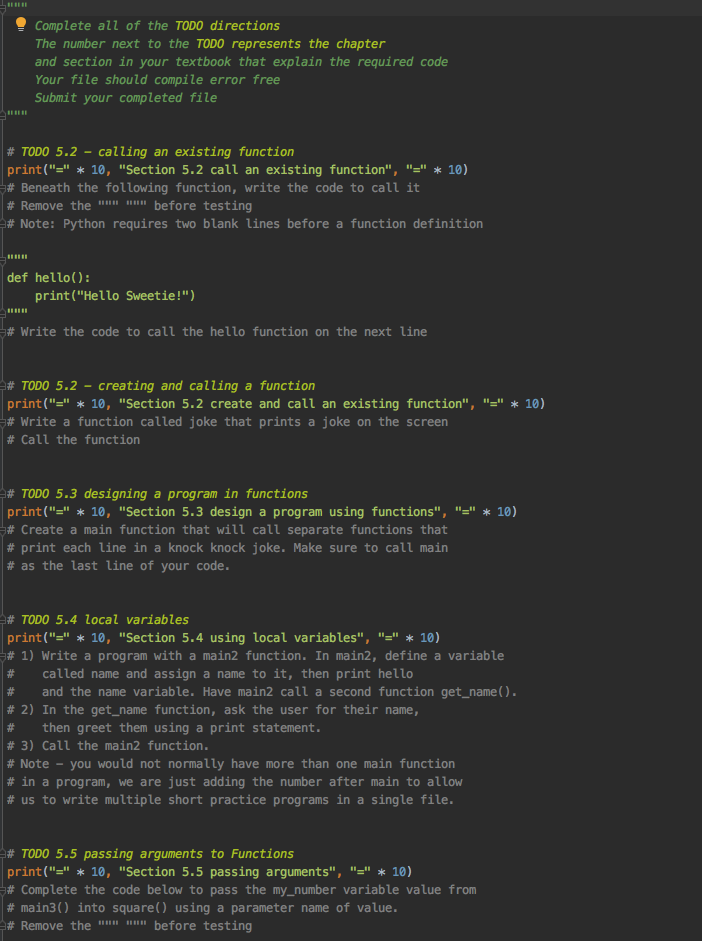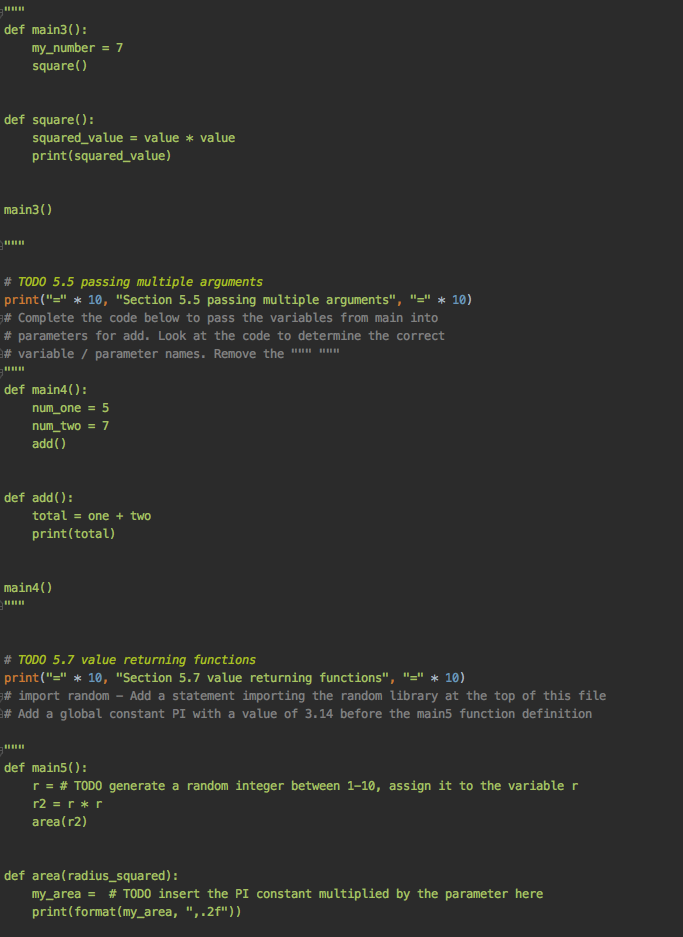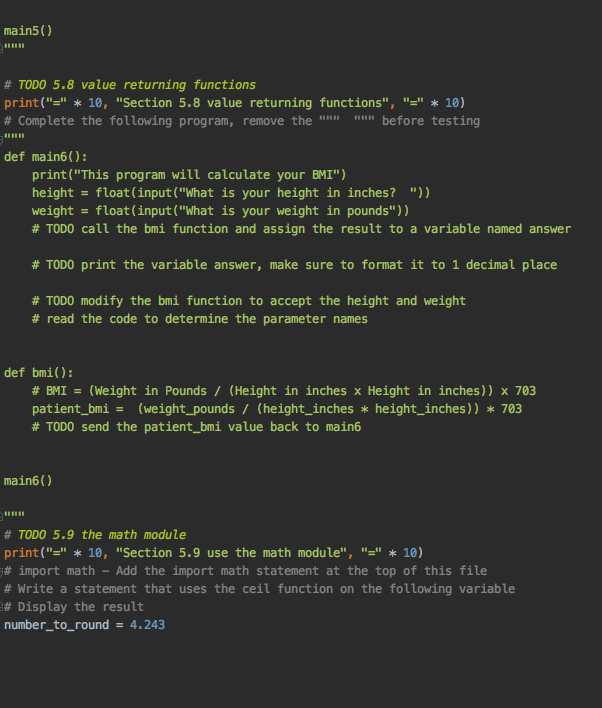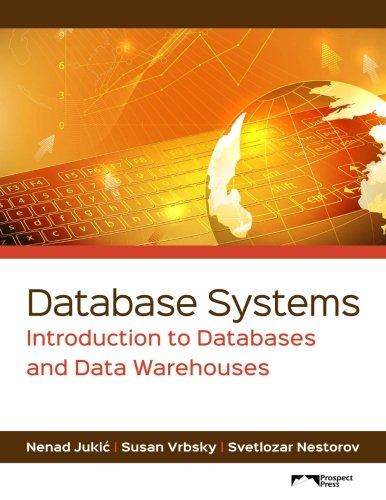


Complete all of the TODO directions The number next to the TODO represents the chapter and section in your textbook that explain the required code Your file should compile error free Submit your completed file # TODO 5.2 - calling an existing function print("=" * 10, "Section 5.2 call an existing function", "-" * 10), # Beneath the following function, write the code to call it # Remove the " " before testing # Note: Python requires two blank lines before a function definition def hello(): print("Hello Sweetie!") # Write the code to call the hello function on the next line TODO 5.2 - creating and calling a function print("=" * 10, "Section 5.2 create and call an existing function", "=" * 10), # Write a function called joke that prints a joke on the screen # call the function # TODO 5.3 designing a program in functions print("=" * 10, "Section 5.3 design a program using functions", "-" * 10), # Create a main function that will call separate functions that # print each line in a knock knock joke. Make sure to call main # as the last line of your code. # TODO 5.4 local variables print("=" * 10, "Section 5.4 using local variables", "-" * 10), # 1) Write a program with a main2 function. In main2, define a variable # called name and assign a name to it, then print hello # and the name variable. Have main2 call a second function get_name(). # 2) In the get_name function, ask the user for their name, # then greet them using a print statement. # 3) Call the main2 function. # Note - you would not normally have more than one main function # in a program, we are just adding the number after main to allow # us to write multiple short practice programs in a single file. # TODO 5.5 passing arguments to Functions print("=" * 10, "Section 5.5 passing arguments", "-" * 10), =# Complete the code below to pass the my_number variable value from # main3() into square() using a parameter name of value. # Remove the " I before testing def main3(): my_number = 7 square() def square(): squared_value = value * value print(squared_value) main3) # TODO 5.5 passing multiple arguments print("=" * 10, "Section 5.5 passing multiple arguments", "-" * 10), # Complete the code below to pass the variables from main into # parameters for add. Look at the code to determine the correct # variable / parameter names. Remove the "1 " def main4(): num_one = 5 num_two = 7 add() def add(): total = one + two print(total) main4 # TODO 5.7 value returning functions print("=" * 10, "Section 5.7 value returning functions", "-" * 10), # import random Add a statement importing the random library at the top of this file # Add a global constant PI with a value of 3.14 before the main5 function definition def main5(): r = # TODO generate a random integer between 1-10, assign it to the variabler r2 = r *r area(r2) def area(radius_squared): my_area = # TODO insert the PI constant multiplied by the parameter here print(format(my_area, ",.2f")) main50) # TODO 5.8 value returning functions print("=" * 10, "Section 5.8 value returning functions", "=" * 10), # Complete the following program, remove the " I" before testing def main(): print("This program will calculate your BMI"), height = float(input("What is your height in inches? ")) weight = float(input("What is your weight in pounds")) # TODO call the bmi function and assign the result to a variable named answer # TODO print the variable answer, make sure to format it to 1 decimal place # TODO modify the bmi function to accept the height and weight # read the code to determine the parameter names def bmi(): # BMI = (Weight in Pounds / (Height in inches x Height in inches)) x 703 patient_bmi = (weight_pounds / (height_inches * height_inches)) * 703 # TODO send the patient_bmi value back to main6 main60) # TODO 5.9 the math module print("=" * 10, "Section 5.9 use the math module", "-" * 10), # import math - Add the import math statement at the top of this file # Write a statement that uses the ceil function on the following variable # Display the result number_to_round = 4.243









